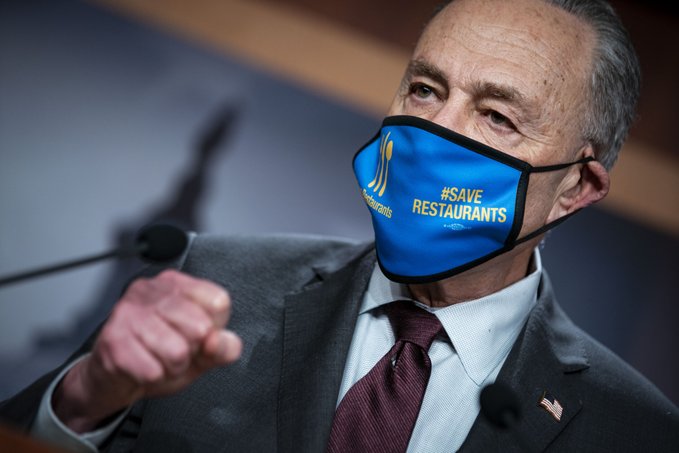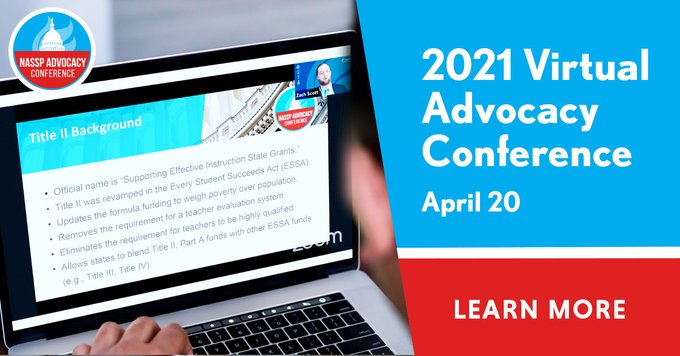|
Get the news and tools you need to advocate for your school. |

In the Endgame of the $1.9 Trillion COVID-19 Relief Package
Congress is very close to passing President Joe Biden’s proposed massive $1.9 trillion COVID-19 relief package. The Senate worked through the weekend to pass a new version of the American Rescue Plan and sent it back to the House for consideration, which is slated to vote on it later today—the final hurdle of Congress before it heads to President Biden’s desk for his signature. Before this latest effort, Congress had already passed two major relief packages since the pandemic began last March, which provided some emergency funding for K–12 schools. While helpful, the truth is that the funding from previous legislation has not been enough to fully shield our most important public institutions against the full impact of the crisis. National education groups, including NASSP, have been united in calling for at least $125 billion for K–12 schools in an additional COVID-19 relief package. Experts have consistently agreed that at least this level of funding is needed to both support schools now and prepare for looming state and local revenue shortfalls on the horizon. The new relief package finally includes the funding for schools NASSP and principals have requested all along, including $7 billion to close the homework gap and fund home internet access for the millions of students who lack the adequate connectivity to learn remotely. There’s still time for school leaders to have an impact on the legislation. Send a message to your Representatives now and urge them to finish the job on this much-needed relief for schools, students, and educators.
THIS MONTH’S TOP ADVOCACY ISSUESED Issues Guidance on Assessments: Accountability Waivers Offered for StatesLate last month in a letter to all chief state school officers, the Department of Education (ED) issued long-awaited guidance on federally mandated K–12 assessments. The Biden administration decided that tests must be administered this year despite the ongoing challenges presented by the COVID-19 pandemic, claiming a “need to understand the impact COVID-19 has had on learning and identify what resources and supports students need,” and to prepare for addressing “the educational inequities that have been exacerbated by the pandemic, including by using student learning data to enable states, school districts, and schools to target resources and supports to the students with the greatest needs.” Although all states must administer annual assessments in some form, ED also invited states to apply for waivers from the accountability and school identification measures that are tied to the assessments, recognizing that student progress has undoubtedly been seriously affected by the pandemic more than any other factor schools and educators can control. Additionally, ED also signaled openness to working with states to adjust normal protocols for how the tests are logistically administered, recognizing that it may not be possible to test large numbers of students in person while adhering to protocols recommended by the Centers for Disease Control and Prevention (CDC). ED also released a resource last month to accompany the updated school reopening guidance from the CDC as part of President Biden’s pledge to have a majority of K–8 schools offering in-person learning within his first 100 days in office. Volume 1 of the new COVID-19 Handbook offers updated practical strategies and recommendations to safely open and operate schools and conduct in-person learning. ED also plans to release Volume 2 in the coming weeks, which will offer further guidance related to addressing social, emotional, and mental health needs of students, supporting educator and staff well-being, addressing learning loss, and more. TWITTER TALK
|
|
For more advocacy tweets, follow NASSP and the advocacy staff on Twitter:
|
|
|
|
Missed an issue of the Policy & Advocacy newsletter?
|
Copyright © 2021 National Association of Secondary School Principals. All rights reserved. 1904 Association Drive You have been included in this email because you are a member, have attended our events, have purchased our products, or have signed up for our electronic newsletter(s). |














